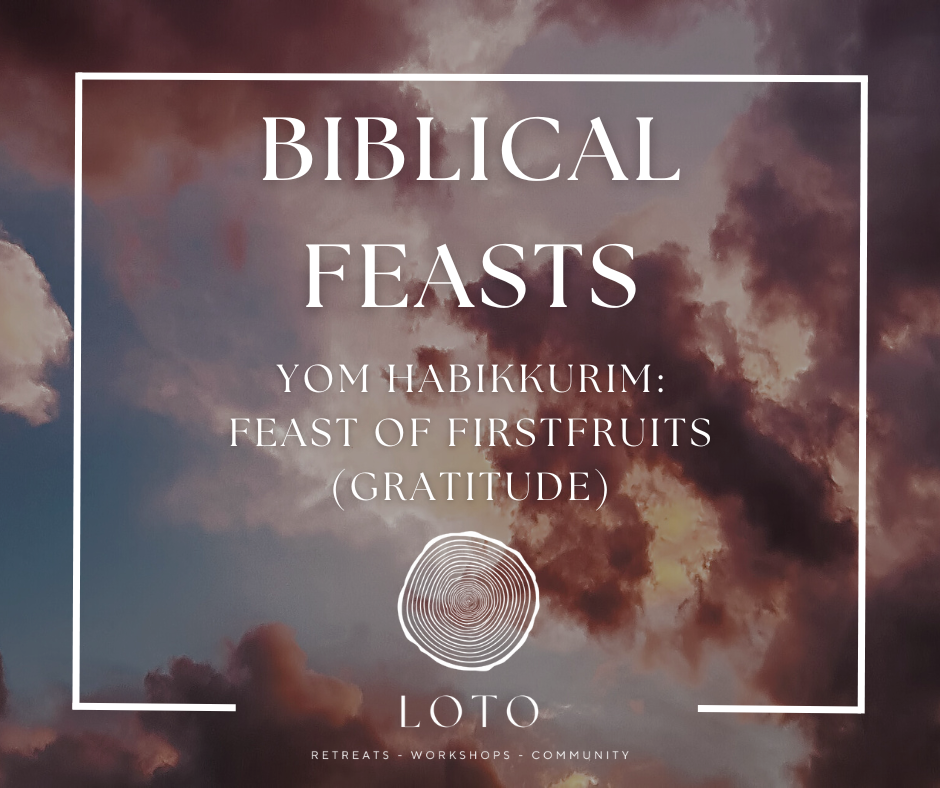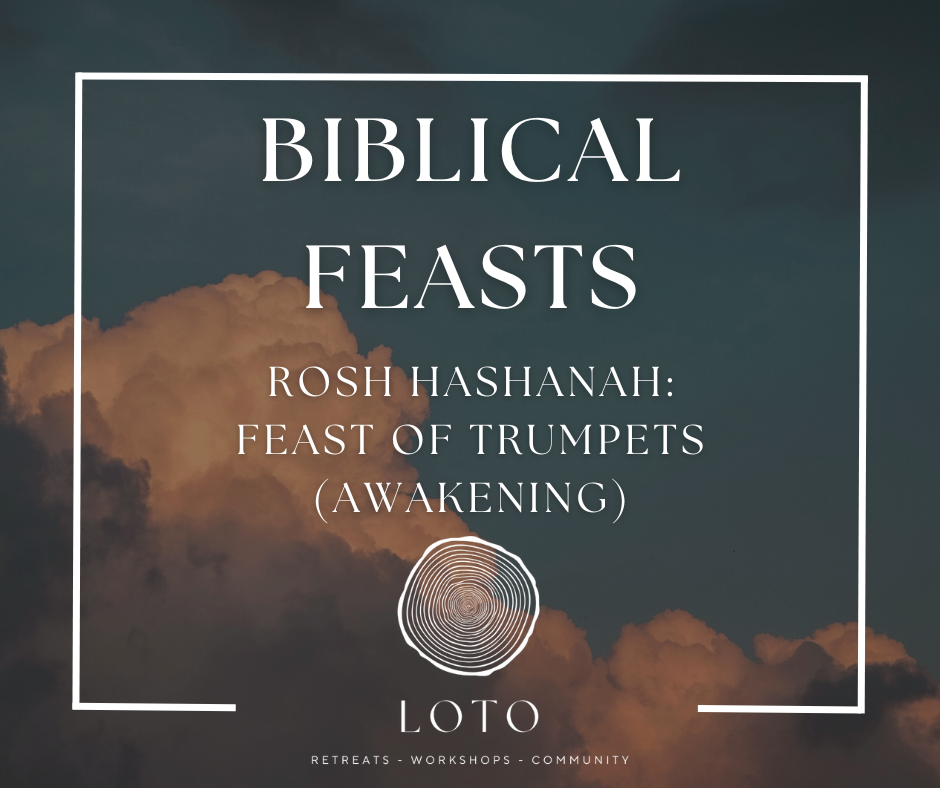Biblical Feasts: Yom HaBikkurim (Feast of Firstfruits) - Gratitude
““Bring the best of the firstfruits of your soil to the house of the Lord your God...”—Exodus 23:19 NIV
After liberation (Passover) and purification (Unleavened Bread) comes gratitude. The Feast of Firstfruits, or Yom HaBikkurim, is the offering of the first harvest to God — a recognition that all provision flows from YHWH, and that our lives are sustained not by our striving but by divine abundance.
This feast is celebrated in the spring, as the very first sheaves of barley have ripened in the fields. Before the people eat of their harvest, they bring the first portion to the priest, who waves it before the Lord as an offering of thanksgiving (Leviticus 23:9–14). It is a liturgy of trust: the people give the first, believing that more will follow.
Gratitude, then, is not an afterthought but the first response.
Offering the First and Best
The command in Leviticus was clear: the first of the harvest belonged to God—Not the leftovers, not the surplus, but the first and best.
This practice taught Israel to live in dependence and humility. By giving the firstfruits, they remembered that the land itself, the seed, the rain, the sun — all were gifts. Nothing was truly theirs to hoard; everything was God's to share.
"The earth is the Lord's, and everything in it, the world, and all who live in it" (Psalm 24:1).
In this rhythm, gratitude was not just a feeling but a practice, embodied in the act of offering.
Gratitude as Awakening
The Christian mystics remind us that gratitude is a spiritual posture. Meister Eckhart wrote, "If the only prayer you ever say in your entire life is 'thank you,' it will be enough."
Firstfruits teaches us to begin from gratitude — not after we have gathered everything, but before. It is a radical trust in divine abundance, a refusal to be defined by scarcity.
This is not gratitude as politeness but gratitude as awakening. To offer the first fruits is to declare: I am not the source of my life. I live in a flow of gifts. I receive, I offer, I receive again.
Firstfruits in the New Testament
In the Bible, Paul uses the imagery of firstfruits to describe Christ and the mystical body. "Christ has indeed been raised from the dead, the firstfruits of those who have fallen asleep" (1 Corinthians 15:20). This is not dualistic triumph — some raised, others lost — but the mystical unveiling that resurrection is the destiny of all creation. Christ as firstfruits is not only one raised, but the promise that life itself is always rising, always renewing.
James extends the image: "Every good and perfect gift is from above, coming down from the Father of lights… He chose to give us birth through the word of truth, that we might be a kind of firstfruits of all he created" (James 1:17–18).The mystical reading is this: we are not merely recipients of firstfruits, we are invited to become them — to live as offerings of gratitude, the visible sign of God's abundance in the world.
The Nondual Invitation
Western frameworks sometimes interpret firstfruits in a legalistic manner — as an obligation or transaction. But the mystics see it as a sacrament of flow.
All things begin in God and return to God. To offer firstfruits is to participate consciously in this eternal rhythm. Gratitude dissolves the illusion of ownership, loosens the grip of scarcity, and opens the heart to generosity.
Catherine of Siena once prayed, "Everything comes from love, all is ordained for the salvation of man, God does nothing without this goal in mind."
Firstfruits is the feast that teaches us this truth: everything is a gift, everything returns, and everything is sustained in Love.
Practicing Firstfruits Today
We may not harvest barley or bring offerings to a temple, but the practice of firstfruits is still alive. Every time we give thanks before a meal, every time we dedicate the first part of our day to prayer, every time we offer the best of our creativity, love, or energy to God and others — we live the Feast of Firstfruits.
To live firstfruits is to say: my life is not my own, but a gift to be offered.
Reflection Questions
What "firstfruits" can you offer in this season — the best of your time, creativity, attention, or resources?
How might gratitude become the beginning posture of your day, not just the ending one?
Where in your life do you see God's abundance at work, even in small beginnings?
How does living in gratitude shift the way you experience God, yourself, and others?
Passover brings liberation. Unleavened Bread brings purification. Firstfruits awakens gratitude. And gratitude always ripens into revelation — which we encounter in the next feast: the Feast of Weeks, or Pentecost (Shavuot).








Yom Kippur is not merely about wiping away wrongs; it is about restoring union. The people are reconciled with God, with one another, and with themselves. Alienation is dissolved. Oneness is remembered.